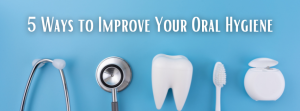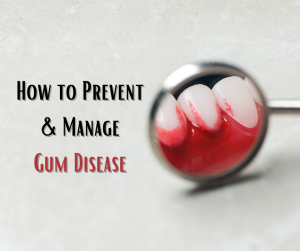
Maintaining good oral hygiene is crucial for your smile and overall health. Poor dental care can lead to various problems, from gum disease and tooth decay to heart disease and diabetes. Fortunately, keeping your mouth healthy is not complicated. Here are five straightforward strategies to ensure your oral hygiene remains top-notch.
1. Brush Properly and Regularly
Brushing your teeth is the cornerstone of good oral hygiene, but doing it properly is key. Use a soft-bristled toothbrush and fluoride toothpaste to brush your teeth at least twice daily, especially before bed. The technique is essential; hold your brush at a 45-degree angle to your gums and use gentle circular motions. Don’t forget to brush your tongue to remove bacteria and keep your breath fresh.
Remember, over-brushing or using a hard-bristled brush can damage teeth and gums, leading to other problems. Also, consider replacing your toothbrush every three to four months or sooner if the bristles are frayed.
2. Floss Daily
Flossing removes food particles and plaque between your teeth and under the gumline, areas a toothbrush can’t reach. Daily flossing is essential to prevent gum disease, tooth decay, and halitosis (bad breath). If you find traditional flossing difficult, try using a floss holder, interdental brushes, or water flossers for easier access and efficiency.
3. Use Mouthwash
Incorporating mouthwash into your oral hygiene routine can reach places that brushing and flossing might miss. It can help reduce acid in the mouth, clean hard-to-brush areas, and re-mineralize the teeth, providing an additional layer of protection against bacteria. Choose a therapeutic mouthwash over a cosmetic one, as it will offer benefits like reducing plaque and gingivitis, rather than merely masking bad breath.
4. Eat a Healthy Diet and Limit Sugary Snacks
Your diet plays a significant role in your oral health. Foods high in sugar and simple carbohydrates can feed the bacteria in your mouth, producing acids that erode tooth enamel and lead to cavities. To protect your teeth, consume a balanced diet rich in fruits, vegetables, lean proteins, and whole grains. Dairy products can also promote dental health due to their high calcium content, which strengthens teeth.
Additionally, drink plenty of water throughout the day, not only for hydration but also to help wash away food particles and bacteria. If you do indulge in sugary snacks or drinks, try to brush your teeth soon afterward.
5. Regular Dental Checkups
Even with meticulous at-home care, regular visits to the dentist are essential. A dental professional can remove calculus (hardened plaque), check for cavities, offer targeted dental advice, and spot potential issues before they become serious. Most experts recommend a check-up and cleaning at least twice a year.
Moreover, if you have any concerns between check-ups, such as tooth pain, sensitivity, or signs of gum disease (like bleeding or swollen gums), don’t call us or request an appointment at either of our offices: Hanahan dental office or North Charleston dental office. Early intervention can save you from more severe health issues down the line.
Implementing these five steps into your daily routine can greatly improve and maintain your oral health. Remember, taking care of your mouth is an investment in your overall well-being.




